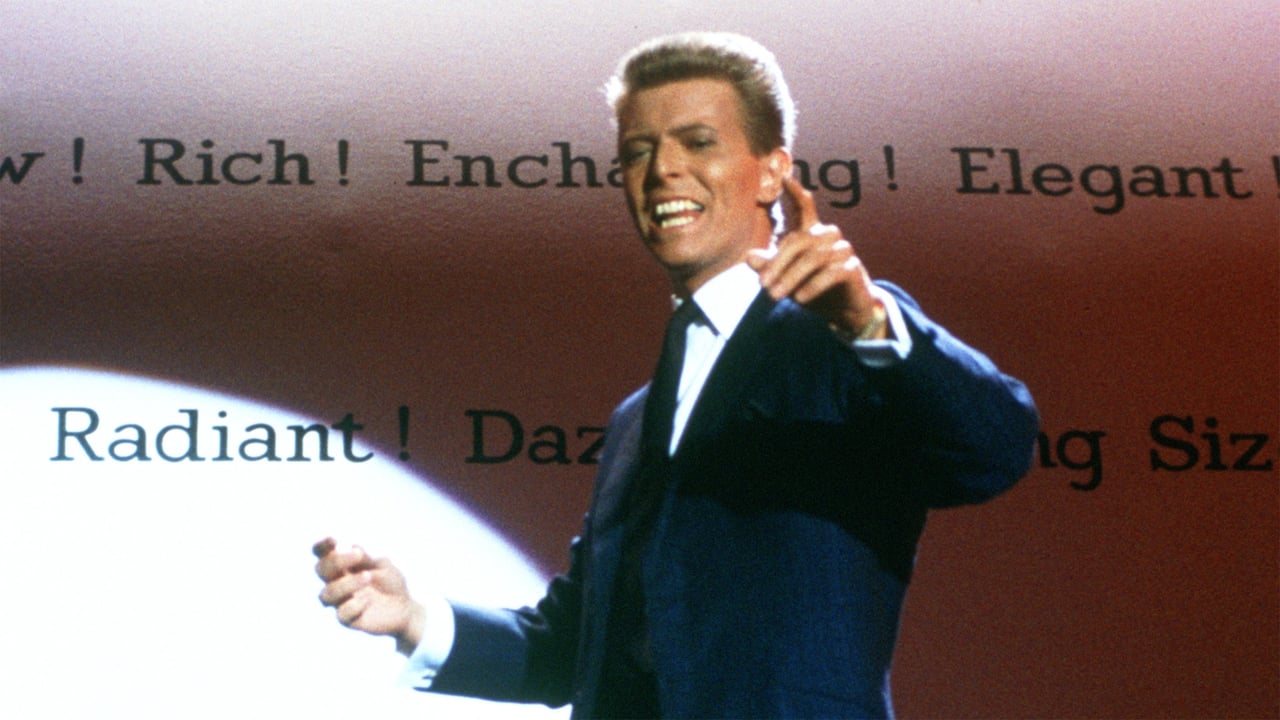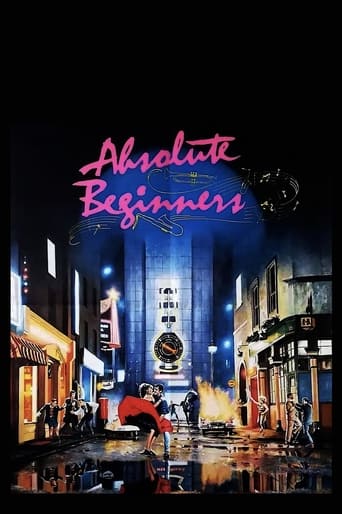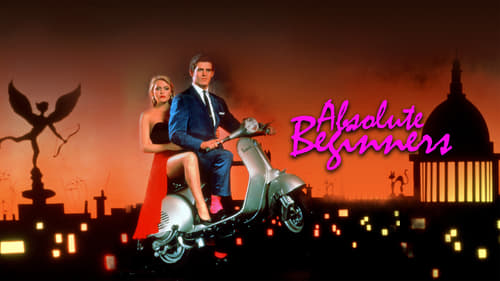


Fantastic!
... View MoreI think this is a new genre that they're all sort of working their way through it and haven't got all the kinks worked out yet but it's a genre that works for me.
... View MoreClose shines in drama with strong language, adult themes.
... View MoreThe movie really just wants to entertain people.
... View MoreI suppose I didn't know what to expect, when I sat down to watch this. However, I can't possibly imagine that I would have enjoyed it regardless of the quantity of warnings that I had been showered in beforehand. I haven't read the novel(though I understand that it is far superior to this). The movie is an eccentric little number that at times gets to be downright bizarre. I'm all for surrealism, but here, it just felt like they weren't taking the issues that they were dealing with seriously(which makes it difficult for the audience to), in spite of them being as important as identity, the effect fame has on you, and racism. There are even parts where it appears to be poorly "dubbed", meaning the words spoken and the lips moving do not match. How? Why? What? Did I seriously just write that? Did some of the actors not speak English? On that, the performances range somewhat, and Bowie is *terrible*. Why is this a musical, anyway? Not all of the songs chosen make sense. The pace is fast, at least at points. Plot-wise, this takes a nose-dive about halfway through. This is cheesy, and the score is way over the top. There is sensuality in this, and possibly language. I recommend this to fans of the type of tunes of the period this takes place during(the 1950's), and/or theatre. Anyone else, stay away for your own good. 5/10
... View MoreIf you've read the original novel, as I did, you will probably hate this thing.The film version of _Absolute Beginners_ is a nightmarish conglomerate of 1980s anachronisms attempting to create a "period piece" set in the late 1950s and failing to re-create or even pay homage to that period -- the US monstrosity of _Dirty Dancing_ does similar to 1963, except that film proved financially successful despite having equally amateurish screen writing. In addition to suffering from "looking too 1980s", the characters have been changed, re-arranged, and downplayed to the point that the only characteristics they have in common with those of the novel are the slightest superficial looks and, of course, their names: Suze is transformed from the narrator's flighty ex-girlfriend and promiscuous negrophile who willingly plans to marry a closeted old queen for money (at her own admittance in the first few pages) into a hapless and naive "Eve"-archetype seduced by fame and glamour, exploited and somehow scammed into a sham marriage by her boss, who surprisingly wasn't given a Van Dyke and pointy hairstyle. She and the narrator, re-named "Colin" (after the book's author, Colin MacInnes) for the film, are also in a relationship.Big Jill's character, a lesbian seemingly butch yet "fop like" in her mid-20s who acts as pimp to a cadre of young and bubble-headed lesbians, and one of the narrator's closest friends, dispensing frank wisdom to the narrator, is reduced to a sort of "named extra" with only a few throw-away lines, and tonnes of comical outfits.The Fabulous Hoplite, a gay young man and another close friend of the narrator in the novel, is also reduced to the point of being pointless in the film, camped-up and all but ignored.The narrator's father in the novel is a sort of sad minor character but in the film, he's played to come off as optimistic and oddly spirited despite the squalid neighbourhood, and the disarray of his marriage to the narrator's mum seems, for all practical purposes, ignored.In its favour, the music (for what it is) is well-composed, and you have to give the production and writing crews credit for actually taking a line from the book ("...some days, they'll write musicals about the 1950s...") as their inspiration to write a musical, but in the world of bad camped-up musicals, this is among the most poorly executed in the bunch. Unlike _Shock Treatment_ or _Starstruck_ crucial plot elements are treated as afterthoughts. Unlike _The Apple_, there is a choppy and uneven flow between musical numbers and spoken dialogue.You really can't blame it's "too 1980s" feel on the fact that it was created in the 1980s. The film version of _Annie_ released in 1981, pays a wonderfully well-executed tribute to the look and feel of New York City in the 1930s, and _Napolean Dynamite_ manages to capture a gritty sort of look and feel of the 1980s despite being made on a low budget in 2003 (though it's not explicitly set in the 1980s, those who lived through the decade cannot deny that the film "feels very 1980s"). Obviously, it was _possible_ to make something good out of this, especially considering the iconic status that the source novel has in the UK, but it fails most apparently in the look and feel, and also in its treatment of the source material, which is downright disrespectful.Perhaps if you haven't read and have no intentions of reading the novel, you could enjoy this campy 1980s anachronism giving a shameful parody of late-1950s Soho London's modernist jazz set. I can definitely see what the writing team were attempting, but they definitely could have done better. With Boy George as a household name and mixed-race musicians and bands on the charts in 1986 UK, they definitely did _not_ need to bowdlerise the characters in the ways that they ended up doing. In fact, I'd go so far as saying that the writers wound up doing what both the book and film criticised harshly -- it ended up having a bunch of adults cranking out crap and treating its targeted teen-aged audience like two-bit idiots to make a quick buck off of.
... View More"Absolute Beginners" was a film for the younger generation, a multi-time film that discussed the issues that teens were facing in Britain and how these troubled, constantly hitting each note, teen's problems can relate to the youth of tomorrow. It could have been dubbed the "Moulin Rouge" of the 80s, but it disappeared. It made its very shallow mark on the world, snuck under the radar, and can now be found collecting dust at either the musical section, the comedy section, or the politically obscure section of that seedy video store that doesn't need chain money to survive. Alas, that wasn't where I found it but I found it, watched it, tried my hardest to sing along with it, stared into Bowie's eyes, but found myself faded by the end. Did it not survive the test of time? Is 1950s London too far removed from our current society? Is Bowie too creepy? I think "Absolute Beginners" falls somewhere into each of these questions as the perfect example of cinema that starts out with a bang, but withers to a mere sparkle by the end."Absolute Beginners" opens with a huge number that takes us through the non-gritty streets of London which involve theft nightly, prostitutes on every corner, dance throughout, booze like rivers, and the swankiest ties on nearly every individual. Sounds like a place we would all hate to be right? Director Julien Temple keeps the mood light and flashy throughout most of the songs as we attempt to learn something about a plethora of our main characters. The one we follow most is Colin played by Eddie O'Connell who follows his dreams of being a photographer while shooting his favorite girl, Suzette (played by Patsy Kensit). These two have chemistry, and while Suzette looks like a pre-rehab Lohan, to me they worked. There was a huge spark between them, the chemistry was like lava, and I believed that these two could take me down a road I had never traveled. I was ready but then, something happened. Temple takes us out of the nightlife, takes us out of the city we grew up with at the beginning, and completely reverses the roles without any dedication to the first. Suzette runs away, Colin becomes a pervert, and Bowie well I am not quite sure what his role is but he sings amazingly well while climbing a mountain I can tell you that much. Temple gives us this flashy city, this opportunity to see those that inhabit it, but leaves us hanging high and dry when it is time to pull the trigger. We learn about Colin, mainly, but nobody else. I could probably watch this film again and still be equally confused as to whom is angry at whom, and what importance fashion had to that era. Also, were they teens really they all seemed like they were pushing their late 20s, but maybe it was my TV.Character development thrown right out the door, Temple tries to overcompensate by giving us bigger, more lavish songs using even more characters that we know nothing about. One of my favorite songs in the film uses this thought as a prime example. Temple uses a split house to show us the lives of Colin's parents (of which I didn't know it was them until after the film) and a song which screams apathy. Great song, too many characters, not enough time, suddenly dragged into another scene of missing coherency, and it just falls apart in your hands. Then, if that wasn't enough, we are rocking our heads to the beat of some great songs, rubbing our noggin' trying to understand where our characters are or are going, and Temple throws in hatred, anger, and politics into the final act. While I was hoping that this film would have a dedicated theme, I didn't think racism would be on the top of the bill. Suddenly, friends are missing, people are angry, and there is some random guy running around fighting Colin because he lives in poverty and has a friend of a different race? Somebody help me out here. It seemed completely rushed and overwhelming nearly to the point of wanting to turn the film off. To me, the ending of "Absolute Beginners" was nowhere near the excitement from the opening number. That first part set the pace, and Temple could not keep up.Overall, I must say that Temple can direct a music video, but I don't think he was quite prepared for the feature film. I don't think this film will ever make it into full "cult" status, and will probably remain unremembered or in the dollar bin for years to come. It is a fun film to watch initially, but when we get to that final part, it just explodes from the inside. I wanted some cutting edge work, but instead what I found was a freaky Bowie coupled with characters I cared nothing for. I could see how this film could relate to the youth of the 80s, but by the end it just felt forced. I think everyone in this production should have taken a moment and listened to "Motivation" by the ever-freaky Bowie in this film, it may have helped solidify this feature into better cult status. I am glad that I watched this film once, but that is all that my small brain can take. I loved the way that Temple caught me from the beginning, but he couldn't control his characters (way too many), and the songs didn't seem to match the final moments of the film. It came out of nowhere, and it was unwelcomed. If this was a film about racism, it needed to be from the beginning. "Absolute Beginners" was a welcomed adventure, but I don't think I will be dusting this film off in the future.Grade: ** out of *****
... View MoreI simply don't know of any better modern musical. Stunningly creative and an absolute starburst of colors and sounds. Amazing sets that are both "real" and fantastical at the same time. Plus, there's a huge number of them, so it must have cost a fortune. Ray Davies' singing in a house built like a dollhouse is a knockout scene--totally creative and unusual and is often the scene which is considered the high point of the film. David Bowie is fabulous, as is Anita Morris, although her role is way too brief. The movie is from 1986 but it seems absolutely fresh today. A totally wonderful romp and a positive message, in addition. Highest recommendation! Please let's have more winners like this one.
... View More